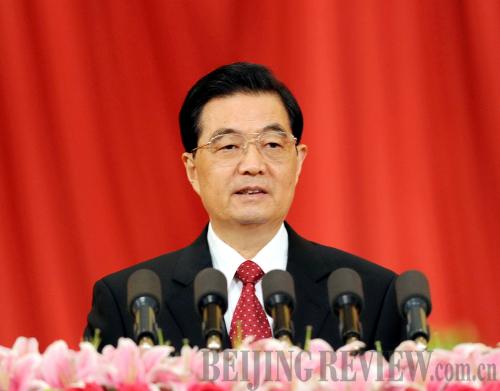|
 |
|
COMMEMORATIVE ADDRESS: Hu Jintao delivers a speech at the CPC anniversary gathering in Beijing on July 1 (LI TAO) |
For instance, in 1898, reformists introduced wide-ranging reforms with the support of the emperor. The short-lived campaign, known as the Hundred Days' Reform, ended in a coup by powerful conservative opponents.
The failure of the Hundred Days' Reform awakened the Chinese people to the fact that they must seek the overthrow of the monarchy through a revolution, Wu said.
The bourgeoisie-led Revolution of 1911 brought the Qing Dynasty, China's last feudal empire, to an end. But it did not result in the establishment of a Western-style republic in China. Following the revolution, warlords seized state power, plunging China into a period of military rule. Armed conflict persisted as warlords competed for dominance.
On the diplomatic front, at the Paris Peace Conference in 1919 following the defeat of Germany in World War I, Western powers decided to transfer Germany's concessions in Shandong Province to Japan rather than returning sovereignty to China.
Outrage over this decision caused massive student demonstrations in China, giving rise to the anti-imperialist and anti-feudal May Fourth Movement. Li Dazhao (1889-1927) and Chen Duxiu (1879-1942), professors with Peking University, played a pivotal role in the movement. They were among the first to introduce Marxism to China and would later become two of the CPC's leading founders.
"When it was founded, the CPC represented the interests of the Chinese nation on the international stage with a pledge to fight foreign aggression," Wu said. "Domestically, it also aimed to serve the interests of the people and lead them in efforts to end their miseries of being oppressed and exploited."
The Chinese people identified with the CPC's positions and actions, and were willing to follow its leadership, she said.
| 